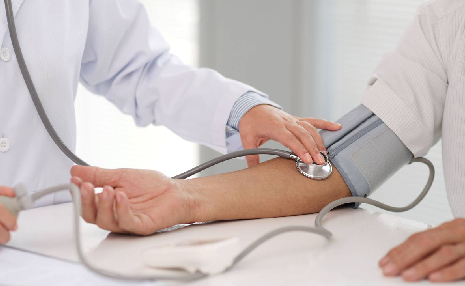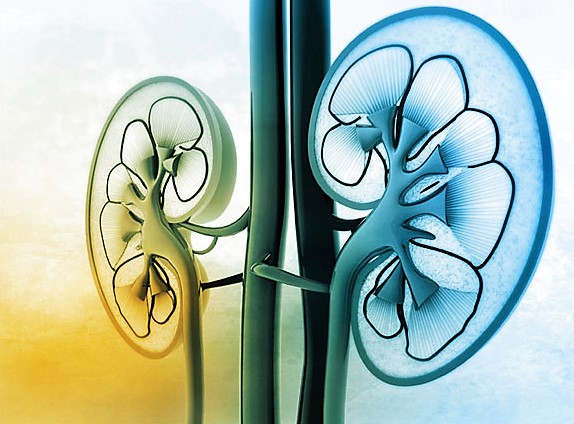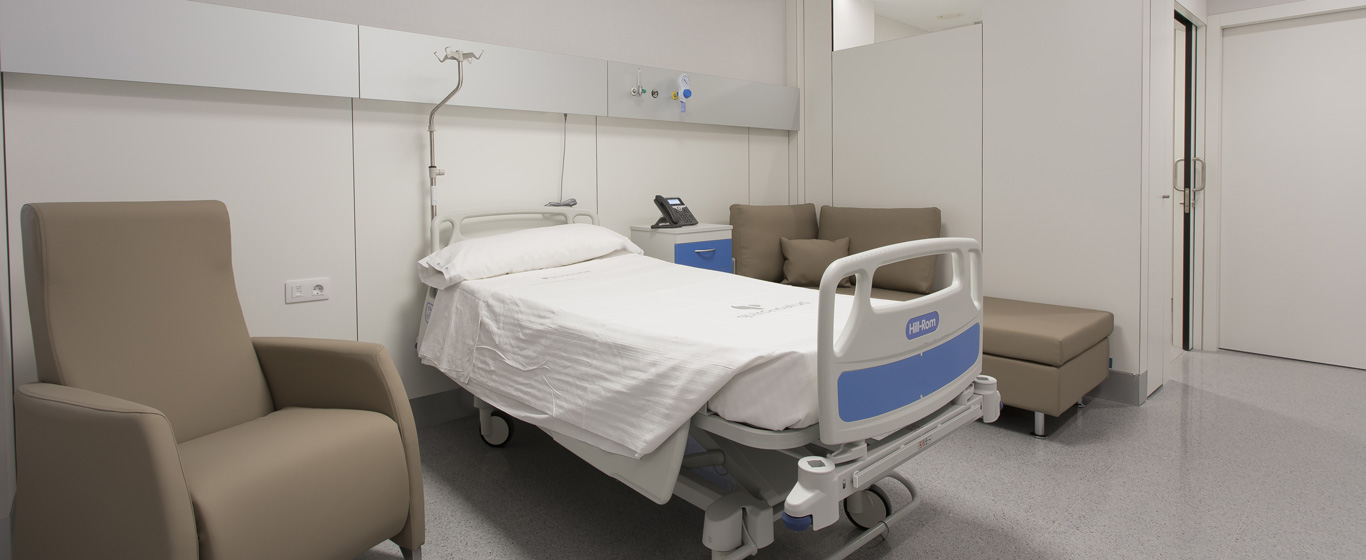Nephrology
Find out everything you need to know about nephrology. We tell you about the most common diseases in nephrology, the main symptoms, the most effective treatments and when it is advisable to see a nephrologist. Book an appointment at one of our hospitals.

What is nephrology?
Nephrology handles the diagnosis and treatment of kidney diseases. This medical speciality is oriented towards prevention and diagnosis, to ensure that we can provide early detection and care for patients affected by renal pathologies as they often suffer a rapid deterioration in their quality of life.
Our nephrologists are also experts in diseases such as diabetes or hypertension, as systemic diseases cause great damage to the kidneys. The Canary Islands is the autonomous community with the highest prevalence of diabetes in Europe.
What does nephrology study?
Nephrology focuses solely on the study of kidney pathologies, so it should not be confused with urology, which deals with disorders affecting all the organs of the urinary system. At Quirónsalud we always offer the most advanced surgical techniques to ensure that our nephrologists can offer the best treatment. Nephrologists can specialise in 4 very specific areas: Primary and secondary glomerulopathies: These are diseases that affect the structure and function of the glomerulus, although other kidney structures may subsequently become affected. We talk about primary Glomerulonephritis when the clinical manifestations are restricted to the kidney, and of secondary Glomerulonephritis when the condition is part of a systemic disease such as lupus, rheumatoid arthritis, etc.
- Chronic kidney disease: Chronic kidney disease is a series of pathologies that affect the kidney in a chronic and irreversible way. Once diagnostic and therapeutic measures for primary kidney disease have been exhausted, it can develop into a chronic disease, and therefore early action is of vital importance.
- Cardionephrology: a high percentage of patients with chronic heart failure have some form of kidney disease. This unit works on the study and joint approach to both pathologies.
- Onconephrology: on the one hand, kidney patients on dialysis have a higher risk of developing cancer. On the other, cancer therapies can affect the kidneys. This subspecialty provides doctors with a global vision for treating patients with these joint pathologies.
- Geriatric nephrology: treats patients over the age of 70 who, due to age and a higher incidence of systemic diseases, tend to suffer from renal diseases more frequently.
- Diagnostic and interventional nephrology: Performs ultrasound monitoring, puncture and action on haemodialysis fistulas, placement of venous catheter for haemodialysis and performance of ultrasound-guided kidney biopsy.
- Renal surgery: focuses on the surgical treatment of kidney conditions together with the Urology team.
Which patients is it for?
Nephrology is aimed at patients with kidney disorders or diseases, and patients with other pathologies that make them more vulnerable to suffering from them. People over 65 years, diabetics, hypertensive patients and those undergoing cancer treatment are the most common profile at the clinic.
Techniques, procedures and diagnostic methods
Nephrologists use many methods and procedures to diagnose or treat kidney diseases. The most prominent include:
- Urine test: a diagnostic test to confirm or rule out the presence of albumin, a protein found in blood and urine. When a kidney is healthy, the result is negative.
- Glomerular filtration rate test: a diagnostic test that assesses kidney function by measuring the amount of blood filtered per minute.
- Haemodialysis: treatment for advanced kidney failure in which the blood is purified by removing excess water and waste substances. A machine is used to carry out the function of the kidneys.
- Kidney transplant: A surgical procedure in which a healthy kidney is placed in the body of a person with advanced kidney disease.
- Nephrectomy: surgical treatment carried out by Urology which involves the removal of all or part of a kidney.
Diseases and symptoms
Main pathologies and diseases
Some of the diseases treated by nephrology are:
- Nephritic colic or kidney stones
- Kidney failure
- Nephritic and nephrotic syndrome
- Kidney cyst
- Pyelonephritis or urinary tract infection
- Polycystic kidney disease
- Chronic kidney disease
- Glomerulonephritis
- Kidney cancer
- Diabetic nephropathy
Related symptoms
The most common symptoms of kidney disease include:
- Decrease or increase in urine volume.
- Fluid retention, swelling or puffiness of the feet, hands and face.
- Fatigue
- Nausea and vomiting
- Weakness
- Irregular heartbeat
- Changes in the appearance of urine
- Anaemia
- Metallic taste in the mouth
- Itchy skin
About the nephrology consultation
We solve any doubts you may have before you see the specialist
Seeing a nephrologist at the first sign of kidney disease is key for a quick diagnosis and effective treatment. That is why you should consult a nephrologist when you notice any of the above symptoms, when you feel sudden back pain or when your urine foams.
What should you keep in mind?
During your first appointment, the specialist will focus on getting as detailed a picture of the patient and their symptoms as possible. They will note down the most important warning signs that have been detected, and the most relevant information from your medical and family history. Then, the nephrologist may perform a physical examination and request further tests.
What should I take to the appointment?
We recommend that you bring a list of the symptoms and medication you are taking and any other relevant information with you to the appointment, which will be of great help to the doctor. If you have previous diagnoses or test results, it is also important to bring them to the appointment.
You may receive a questionnaire a few days before your appointment asking about your medical history, usual medication and other specific questions that will allow us to anticipate certain aspects of your consultation, helping us expedite your treatment and offer you a more personalised care. To do this, we recommend that you download the free Quirónsalud Patient Portal application, which will facilitate communication with your healthcare team.

If you have any further questions, please contact us through the Patient Services telephone number: 900 301 013








































































